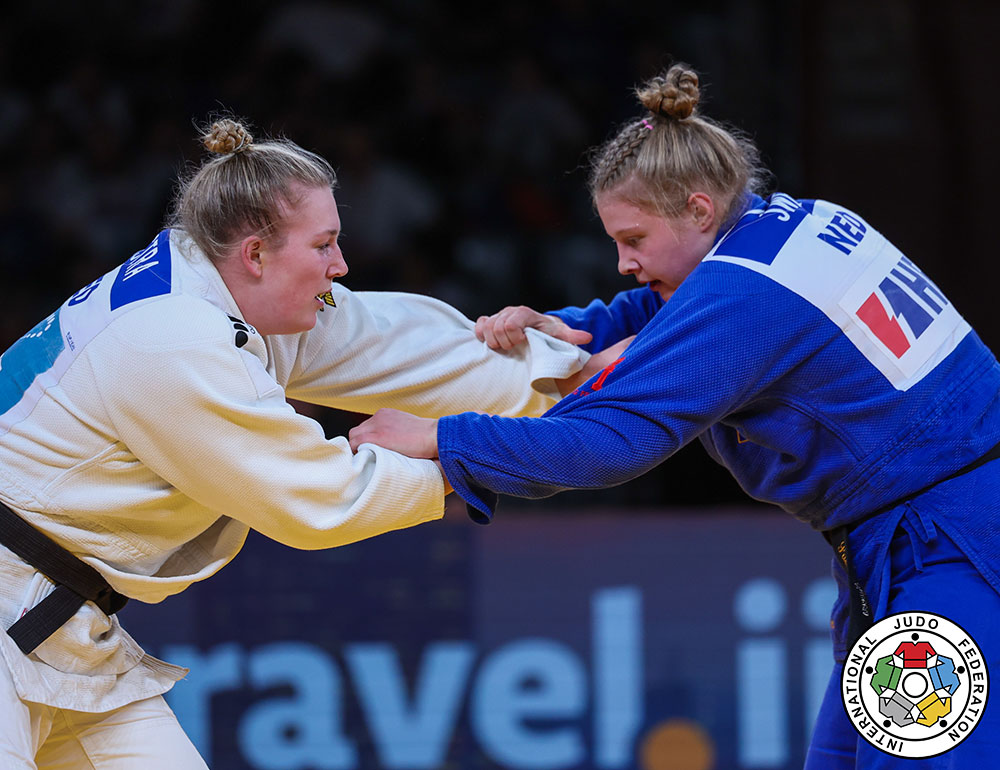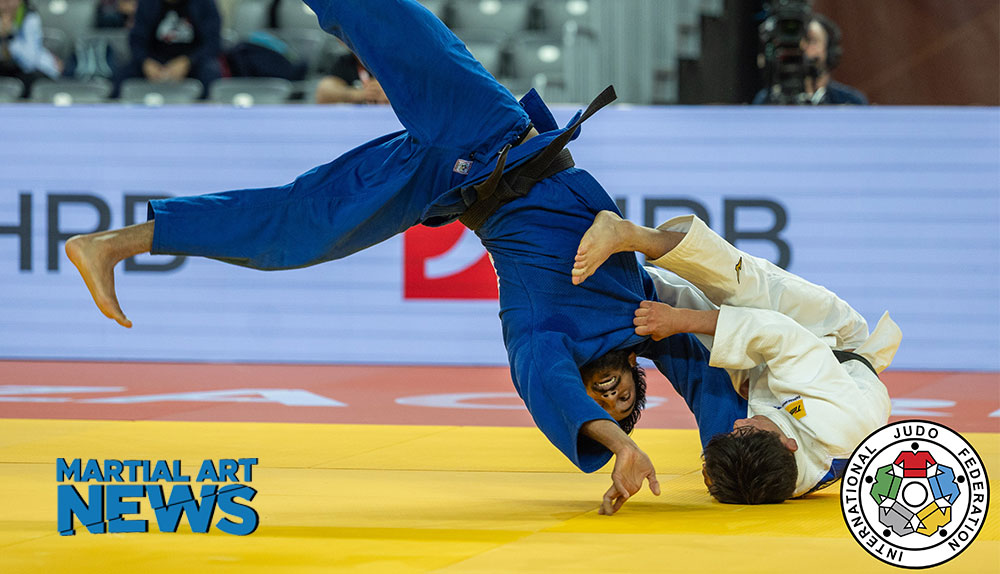The Zagreb Grand Prix 2025 once again cemented the Croatian capital as one of the key hubs on the IJF World Judo Tour. Over three intense days, 14–16 November, Arena Zagreb was filled with 370 judoka from 48 nations – a field packed with world-class athletes chasing ranking points, prize money and vital experience on the road to upcoming championships.
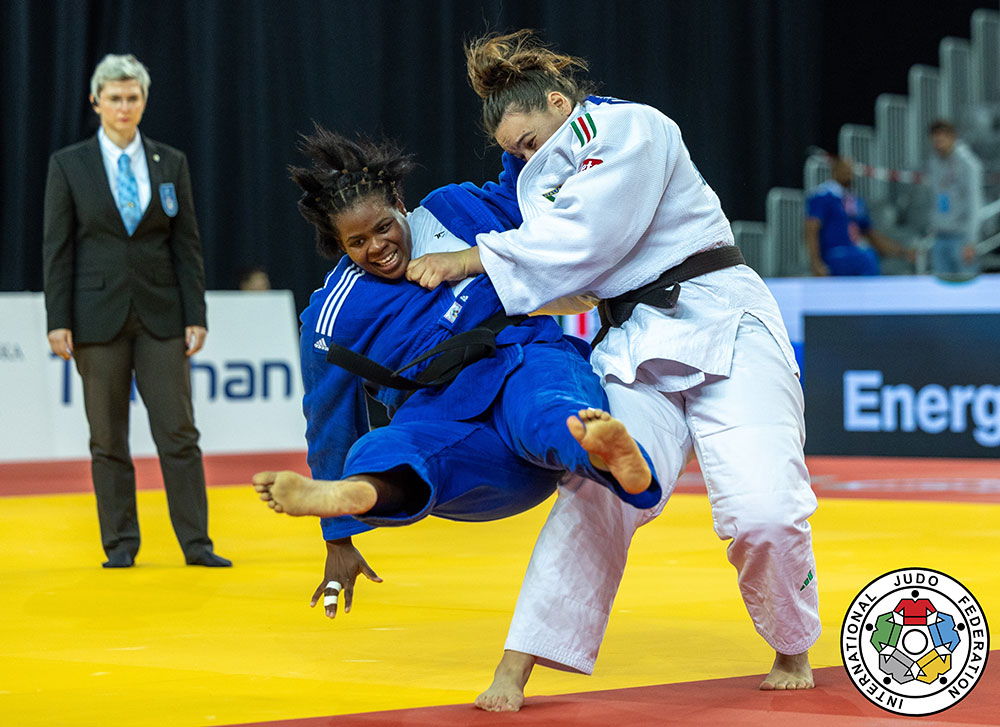
For Sweden, a small but sharp squad made the trip: Tova Granberg (-57 kg), Ida Eriksson (-70 kg) and Karl Bååthe (-100 kg), led by national head coach and Olympic medallist Sally Conway. There were no Swedish medals this time – but plenty of important signs of where Swedish judo stands right now and just how close the athletes are to breaking into the very top.
A Grand Prix with real weight on the judo calendar
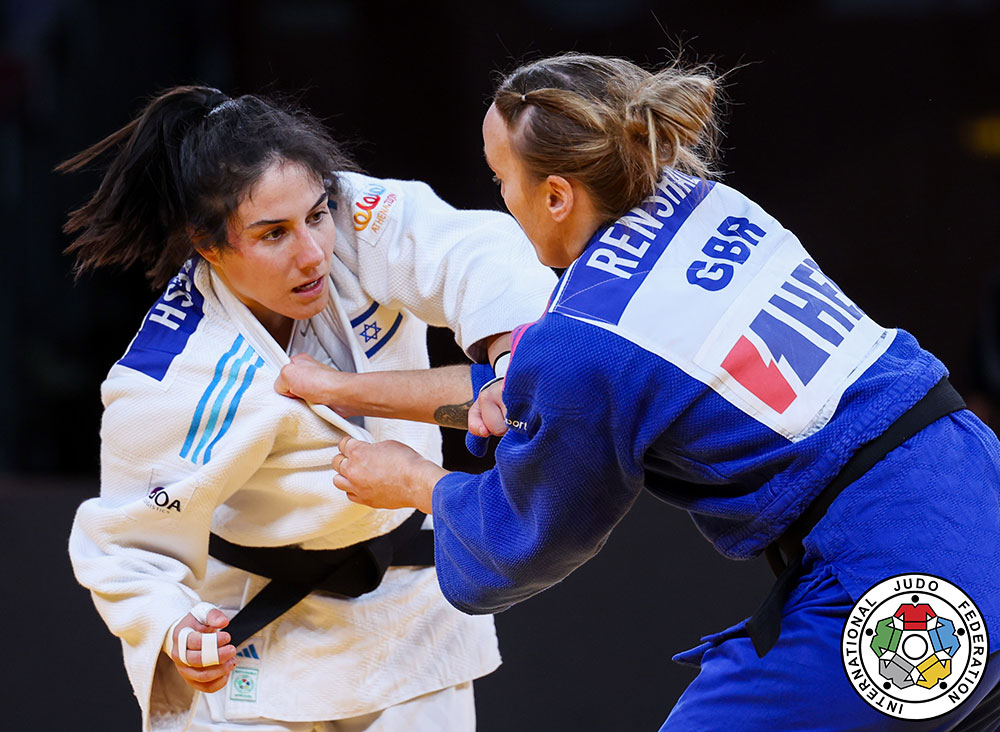
The Zagreb Grand Prix is now in its twelfth edition and has quickly become one of the most appreciated events on the tour. The competition takes place in the impressive Arena Zagreb, which has also hosted European Championships in judo, and the Grand Prix is counted among Croatia’s most important annual sports events.
At the official opening ceremony, Nage-no-kata was demonstrated by local children – a reminder of how deeply rooted judo has become in Croatian youth sport. After that, the country’s Prime Minister Andrej Plenković, the deputy mayor of Zagreb, Olympic champion Barbara Matić and several top officials from Croatian sport and the IJF stepped up to the tatami to welcome the world tour.
From the stage two main themes were underlined:
-
judo as a carrier of values – a sport built on respect, discipline and skill
-
the Grand Prix as a driving force to inspire the next generation of Croatian judoka
At the same time, speakers highlighted the increased public investment in sport in Croatia in recent years – one of the reasons the country has been able to produce stars such as Barbara Matić and heavyweight talent Helena Vuković.
European dominance – day by day
Day 1: lightweights and a European gold rush
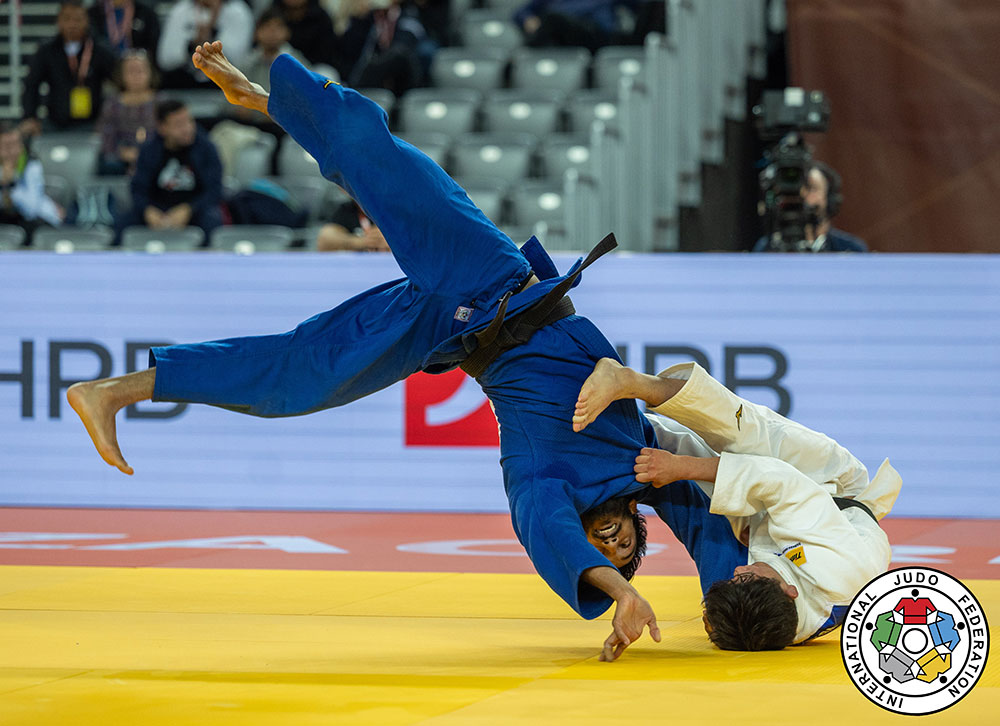
The opening day set the tone: Europe dominated completely in the light weight categories. Eva Perez Soler (Spain) took gold in -48 kg, France’s Enzo Jean won -60 kg, Kosovo’s Distria Krasniqi secured yet another major title in -52 kg, David Garcia Torne (Spain) captured gold at -66 kg and Serbia’s Marica Perišić topped the podium in -57 kg after stopping home favourite Ana Viktorija Puljiz in the final.
It was a first day that showcased both breadth and depth in European judo, while the Croatian crowd was put through an emotional roller coaster as local medal hopes mixed with visiting nations’ gold celebrations.
Day 2: middleweights take over
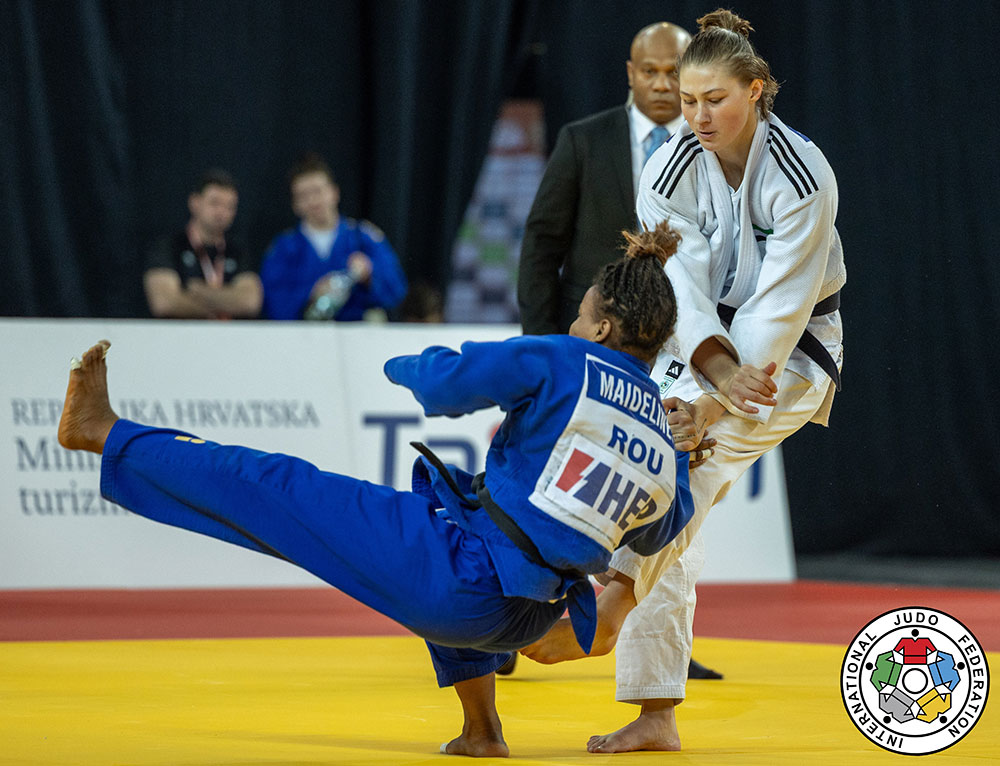
Day two belonged to the classic “middleweight day”, with -63, -70, -73 and -81 kilos on the programme. The intensity rose and many of the sport’s biggest names stepped onto the tatami.
In the drama at -70 kg, home star Lara Cvjetko became one of the crowd favourites. She fought her way all the way to the bronze medal match and secured a place on the podium in front of a roaring home crowd, after a series of tactically mature contests where she combined strong gripping with quick entries into seoi-nage and uchi-mata.
Gold in the category went, as the IJF’s own reports highlighted in the headlines, to Japan’s Tanaka – yet another piece of evidence that Japan still holds a very strong grip on the middleweight divisions.
Day 3: heavy names, heavy throws
The last day was reserved for the heaviest categories – and the stars continued to deliver. Titles went to, among others, Bulgarian powerhouse Ivaylo Ivanov at -90 kg, Ukraine’s Yelyzaveta Lytvynenko at -78 kg, Spain’s Nikoloz Sherazadishvili at -100 kg, France’s Celia Cancan in +78 kg and Kanan Nasibov in +100 kg, closing the tournament at the very highest level.
For hosts Croatia, one of the absolute highlights came when Helena Vuković battled her way to bronze in the women’s heavyweight division – the roar in Arena Zagreb was deafening and became a perfect symbol of just how important the event has become for Croatian judo.
The Swedes in Zagreb – fine margins from the top 7
A three-person team with big ambitions
Sweden arrived in Zagreb with three athletes in the senior competition:
-
Tova Granberg (-57 kg)
-
Ida Eriksson (-70 kg)
-
Karl Bååthe (-100 kg)
The team had been presented in advance on the Swedish Judo Federation’s channels, with start times, draw information and a clear call for the Swedish judo family to follow the matches on JudoTV. In the coach’s chair was national head coach Sally Conway – Olympic bronze medallist from Rio 2016 and today head of the Swedish senior programme.
Over the last few years the Swedish national team has taken clear steps forward, with Olympic bronze medallist Tara Babulfath and a new generation that includes Eriksson and Bååthe among others. The Zagreb Grand Prix 2025 was therefore just as much a test of current form as a checkpoint in a longer plan.
Ida Eriksson – seventh in a brutal -70 field
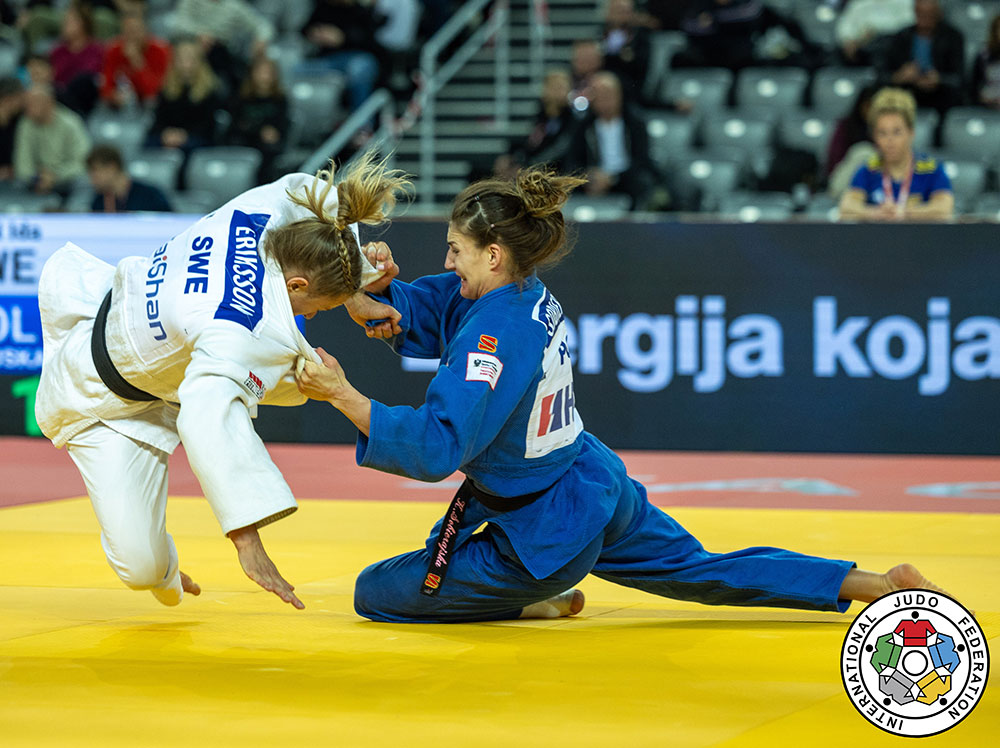
Ida Eriksson came to Zagreb as one of Sweden’s most established names. During 2025 she has taken silver at the Grand Prix in Upper Austria and gold at the Grand Prix in Lima – results that have truly cemented her place in the international middleweight elite.
In Zagreb she once again proved that she belongs at that level. Her path into the repechage was lined with solid judo: controlled gripping phases, patient movement and a clear ambition to dictate the tempo. It was obvious that she has grown into the role of seasoned national team judoka, not least in how she handled the breaks and the communication with coach Conway at the edge of the mat.
The decisive moment came in the repechage where Eriksson faced home favourite Lara Cvjetko – a judoka with European Championship finals on her résumé and with plenty of experience performing in front of a Croatian crowd. This time the Croatian took the win, and despite Ida’s offensive attempts in the final minutes she had to settle for seventh place in the category.
A seventh place at Grand Prix level still means valuable world ranking points and, just as importantly, a very concrete signal that the Swede is close to the medal matches even in the deepest of fields. With continued appearances at the autumn Grand Slams, the Zagreb result may become an important building block ahead of the next European Championships and, in the longer term, the next Olympic cycle.
Tova Granberg – continuing the climb to her senior breakthrough
For 22-year-old Tova Granberg, the Zagreb Grand Prix is part of her first real season where she is seriously establishing herself at senior level. Her record already includes several European Cup medals – including bronze in Sarajevo and Skopje 2025 – and a solid ranking position among the world’s -57 kg judoka.
In the international results from Zagreb there is no placing among the top seven next to her name, which means she did not reach the final block this time. In the Swedish Judo Federation’s own coverage her performance is described as stable, but with very small margins to the established top names.
For a young judoka in one of the most competitive women’s divisions, this is still extremely valuable experience: new opponents, higher tempo and a chance to measure her development against the very best. Granberg has shown during the year that she masters a modern, mobile -57 style with good transitions into ne-waza; the next step is to convert that into wins also at Grand Prix level.
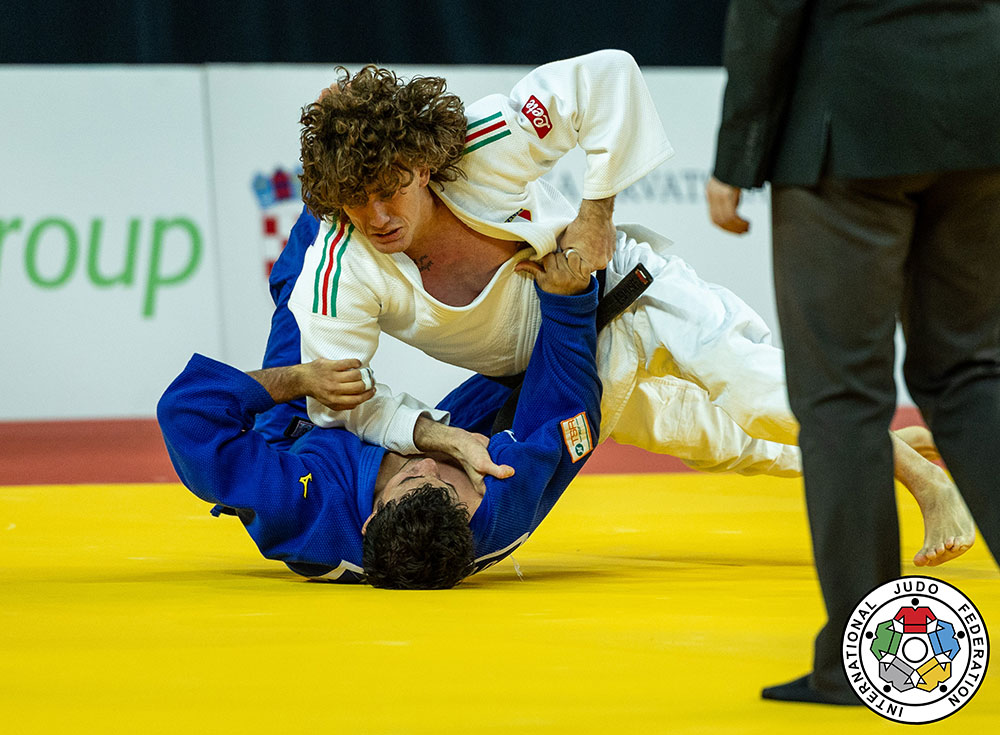
Karl Bååthe – a rising name in the heavyweights
Karl Bååthe at -100 kg is one of the most interesting names in Swedish men’s judo right now. In 2025 he has already taken a gold medal at the European Open in Tallinn, a fifth place at the Grand Slam in Ulaanbaatar and several solid performances at international events.
In Zagreb, the day turned out short in terms of results – the IJF lists no placing among the top seven for Bååthe, which indicates that he lost before the repechage stage and finished outside the final block. But in the heavy divisions the distance between an early exit and a medal is sometimes smaller than it looks on paper; a single lost grip fight or missed entry can decide the entire day.
Given Bååthe’s trajectory – he has already beaten reigning European champions and Olympic medallists during the season – Zagreb looks more like a small bump in the road than a brick wall. Getting a feel for the pace at a Grand Prix with 48 nations represented is, in itself, an investment for the future.
Sally Conway and the Swedish push
The fact that Sweden is now led by a head coach like Sally Conway is visible not only in the coach’s chair but in the entire structure around the national team. The IJF has previously highlighted her role in Swedish judo – an Olympic medallist who has gone from winning her own Grand Prix medals to building systems for a small but ambitious judo nation.
In Zagreb this could be seen in the details:
-
carefully prepared match plans for each Swedish athlete
-
clear communication between coach and fighter during the breaks
-
a consistent focus on going for the win, even against highly ranked opponents
Eriksson’s seventh place, Granberg’s growing senior experience and Bååthe’s chance to test himself against the world’s best at -100 kg are all pieces in a larger puzzle. The goal is to make Swedish judo competitive over time, not just through isolated top results.
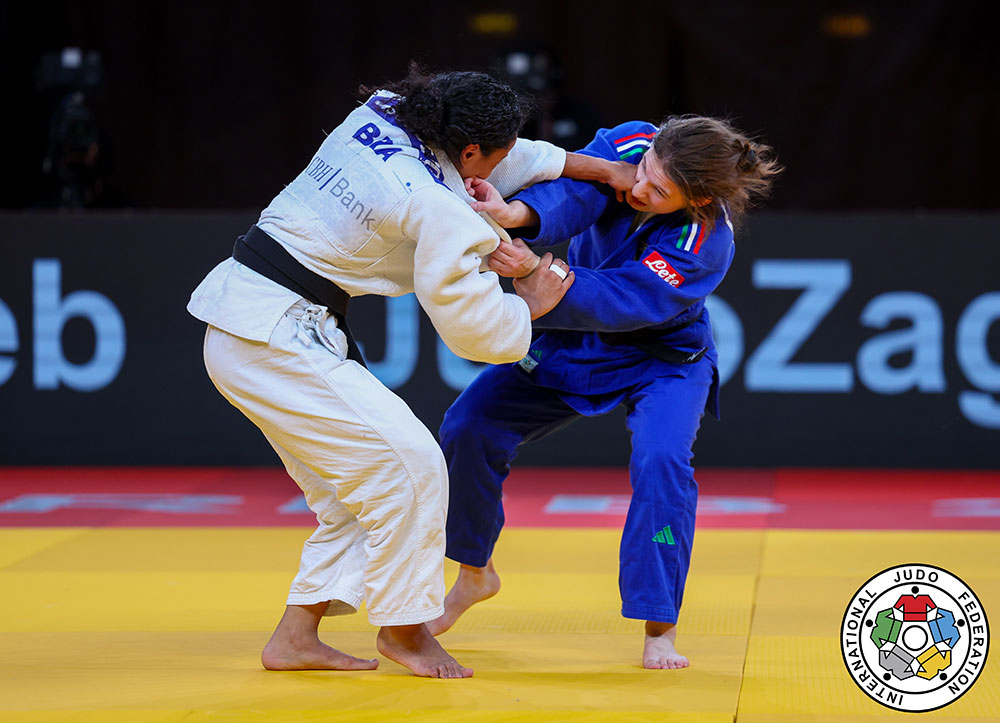
What does Zagreb mean for Swedish judo?
On paper Sweden leaves Zagreb without a medal, but with:
-
a Grand Prix seventh place through Ida Eriksson at -70 kg
-
high-quality experience for Tova Granberg in one of the toughest women’s divisions
-
yet another reference point for Karl Bååthe in the heavyweight class at World Tour level
If we add the strong results the three already carry with them from earlier in the year – the European Championship squad with Babulfath, Eriksson and Bååthe, European Cup medals for Granberg and Bååthe’s gold in Tallinn – a clear picture emerges: Swedish judo is on its way to establishing itself as a small but sharp presence in the European top tier.
The next step for the Swedish athletes will be Grand Slam events such as Abu Dhabi and Tokyo, where Granberg, Bååthe and Eriksson are all expected to feature. There they will have new chances to put the lessons from Zagreb into practice – and perhaps take that final step from final block appearances to actual medals.
Summary
Zagreb Grand Prix 2025 delivered everything you could ask from a World Judo Tour event: a strong field, a European gold rush, Croatian medals in front of a passionate home crowd and several new names to watch ahead of upcoming championships.
From a Swedish perspective, the event provided further proof that the work being done at home is starting to bear fruit. Ida Eriksson’s seventh place and the performances of Granberg and Bååthe show that the road to the absolute world elite is no longer a distant dream – it is now a question of details, match days and continued consistent investment.
A Warm Welcome to the Zagreb Grand Prix / IJF.org
Europe Shines on Day 1 of Zagreb Grand Prix | Euronews
Highlights From the Preliminaries, Day 2 / IJF.org
